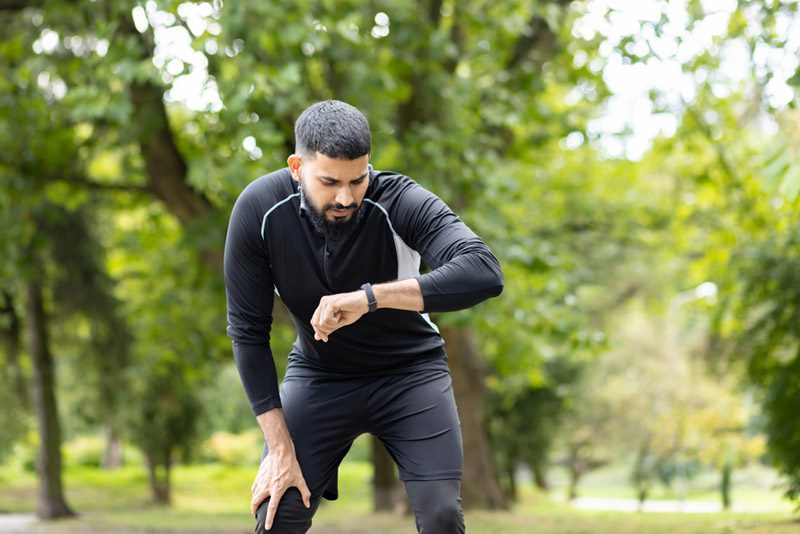Recently diagnosed with diabetes or know someone who has been? You might be left with a lot of questions about it.
This article covers everything you need to know, from the basics of diabetes to navigating daily life with the disease to diabetes remission.
Read on for tips and resources to thrive after your diagnosis.
What is Diabetes?
Diabetes is a chronic disease affecting millions of people worldwide. It is a complex metabolic disorder that affects how the body processes glucose, a key source of fuel for the body’s cells. In both major types of diabetes — type 1 occurring when the pancreas produces little to no insulin, and type 2 involving insulin resistance — the result is consistently high blood sugar levels which lead to an array of health complications if left unmanaged.
Here is what happens on a cellular level:
- Glucose comes from carbohydrate foods like bread, rice, milk, fruit, etc., and is vital for supplying energy to the cells for proper function.
- The hormone insulin, produced by the pancreas, allows cells throughout the body to absorb and utilize glucose.
- In diabetes, either insufficient insulin is produced (type 1 diabetes) OR cells become resistant to the effects of insulin (type 2 diabetes) and do not utilize it.
- As a result, glucose from carbs builds up in the bloodstream leading to elevated sugar levels rather than being absorbed by cells.
A rare form of diabetes is diabetes insipidus, which is caused by a deficiency of the hormone vasopressin.
In this guide, we will be focused on type 1 and type 2 diabetes.
Prevalence & Risk Factors
Over 537 million adults globally live with diabetes. In the U.S., 37 million individuals have diabetes while 96 million have pre-diabetes. In India, 77 million people have type 2 diabetes while 44 million people have pre-diabetes (Source: Epidemiology of type 2 diabetes in India by Rajendra Pradeepa and Viswanathan Mohan).
By 2045, it is estimated that 1 in 8 people will have diabetes.
Some key risk factors that will help early screening:
- Family history
- A Sedentary lifestyle
- A heavy “sugar and carb” diet
- Overweight or obese
- Gestational diabetes
- Being over the age of 45 years
- High blood pressure or other chronic conditions
Signs & Symptoms
The most common diabetes signs and symptoms include:
- Frequent urination
- Unusual thirst
- Increased hunger
- Blurred vision
- Slow healing sores
- Recurrent infections
However, some people with type 2 diabetes remain asymptomatic for years and get diagnosed only when complications emerge. Knowing risk factors and getting regular blood work done allows for proactive screening.
What To Do After a Diabetes Diagnosis?
- Process Your Diagnosis: It’s normal to feel overwhelmed or experience emotions like anger or grief. Allow yourself enough time to process it. Consider joining a local or online community – it will help you see you’re not alone.
- Focus on Factors You Can Control: While diabetes is difficult to fully cure, you have the power to manage critical aspects to enter remission like:
- Blood sugar monitoring as prescribed
- Focus on repairing gut health
- Eat a balanced low GI diet
- Exercise regularly
- Take medications and supplements appropriately
- Quit smoking and alcohol
- Manage stress levels and life stressors
- Look for root causes behind your diagnosis. Diabetes can happen due to numerous reasons
- Prioritize Your Emotional Well-being: It’s common for people with diabetes to have levels high levels of cortisol. High levels of stress exacerbate the complications of diabetes. They can result in hormonal fluctuations that make managing blood sugar harder. Managing life and environmental stressors are key factors in your journey to diabetes remission.
- Surround Yourself with Support: Share your diagnosis with close family and friends. At times you may need help managing medications, meals, or even emotional lows. Building your support squad will help you stay on track on the path to treatment.
Digging Deeper into Insulin Resistance
Insulin resistance can stem from various factors within the body. That’s why the same treatment doesn’t work long-term. Unlike a one-size-fits-all approach, root-cause care recognizes that the specific drivers of high blood sugar and insulin resistance differ profoundly between individuals based on genetic makeup, lifestyle patterns, and biological, psychological, and chemical factors. Therefore, a root-cause approach can map your body’s unique behavior through advanced assessments. This helps identify the root organ causing the imbalance; This could be the pancreas, liver, gut microbiome or any other interconnected system responsible for disrupting glucose metabolism.
These insights allow clinicians to develop personalized treatment plans targeting the root organ dysfunction through interventions that target nutrition, lifestyle, emotional, and other aspects of your life. At Recoup Health, our interdisciplinary team is uniquely equipped to deliver holistic treatment for diabetes. Our treatment protocols are guided by a coordinated team of medical experts. This includes health coaches, psychologists, yoga therapists, nutritionists, functional and lifestyle medicine physicians, physiotherapists, etc. This 360-degree methodology treating the root imbalances unique to you, helps you gain long-lasting freedom from constant medication.
Prioritize Self-Care After Your Diagnosis

How do you deal with your diagnosis during the duration of your treatment? We help you stay motivated to meet your health goals, with daily check-ins and regular follow-up consultations.
- Commit To Stress Management: Anxiety and emotional exhaustion raise blood sugar. Relaxation techniques as advised by your doctor or health coach like meditation, yoga, and daily deep breathing will control your stress levels.
- Maintain Your Hobby Interests: Continue activities you are passionate about as much as possible. Do not let diabetes completely redefine your identity. This will help uplift your mood.
- Stay Positive and Goal-Oriented: Focus on successes achieved in managing diabetes rather than feeling restricted. Set realistic targets to achieve balance and wellness while staying upbeat.
- Incorporate More Activity In Your Routine: Reduce sedentary habits, like sitting for long periods. A 2-minute break every 30 minutes can work wonders. Additionally, aim for a 30-minute walk every day. Adding cardio and some strength training will help to regulate your blood sugar. Even light walking after meals is beneficial.
- Seek Out Mental Health Support: Whether through individual or group counseling, sharing your feelings with your psychologist prevents isolation. Therapy will equip you with healthy coping techniques to manage stress levels and help you gain a different perspective.
Is Diabetes Remission Even Possible?
Yes, it is! The past decades have seen tremendous advances in reversing even established cases of type 2 diabetes and pre-diabetes through evidenced-based lifestyle medicine approaches. Our unique 4R approach is designed to help treat diabetes in the long term. Treatment protocols are designed to treat the root causes of insulin resistance for each individual. Over the past few years, research has shown that our environment and behaviors play a big role in how our genes work. These are called epigenetic factors and go a step beyond genetic history.
Precision and advanced testing help identify epigenetic factors, gut health, and hormonal imbalances responsible for elevated blood sugar levels. Your environment and behaviors play a big role in how your genes work. Our personalized plans target nutrition plans, stress reduction techniques and more based on your unique body makeup.
Sustainable lifestyle habits alongside advanced biohacking methods empower individuals to maintain an optimal state of health after reversing diabetes through holistic protocols focused on root-cause resolution.
If you or a loved one has been struggling with managing diabetes or its complications, exploring treatment programs with Recoup Health will provide renewed hope and health. Book a consultation today.
Unsure whether booking an appointment is the right step for you? We encourage you to drop us a note at connect@recoup.health. We’re here to answer any questions and provide the information you need to make an informed decision about your healthcare journey.




